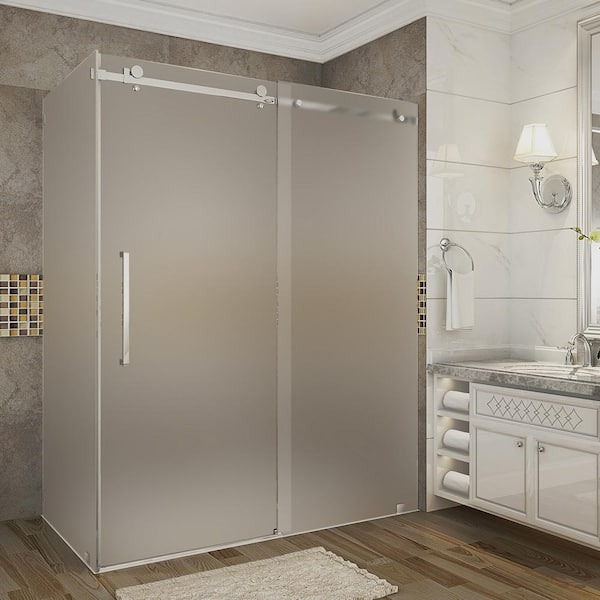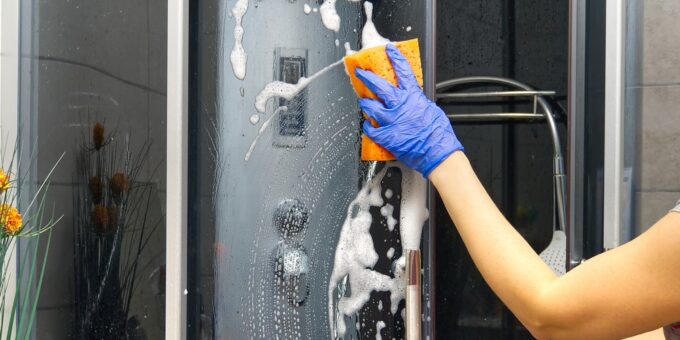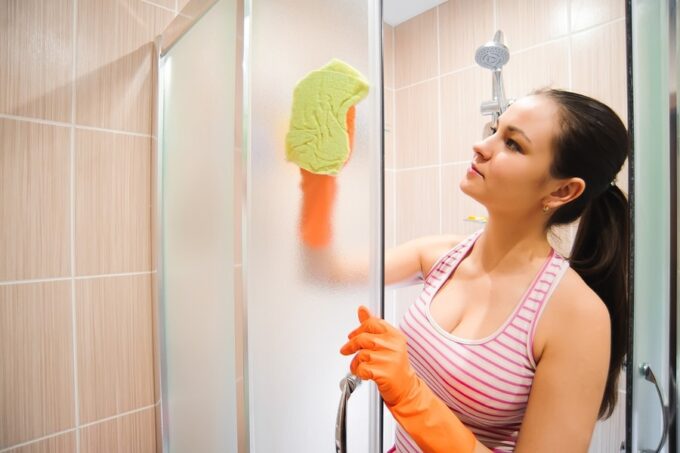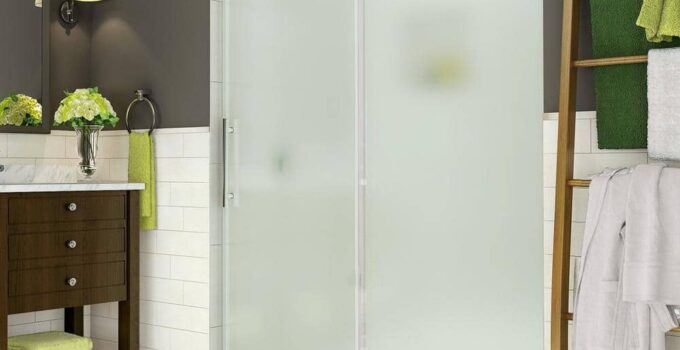Hotels in Hawaii thrive on image. Guests expect pristine rooms, tropical warmth, and bathrooms that feel like mini-spas.
Yet cloudy shower doors can undermine that first impression instantly. A guest who steps into a bathroom with streaked, spotted glass may question the hotel’s cleanliness overall.
What seems like a minor flaw becomes a silent cost, damaging reviews, higher maintenance budgets, and even lost bookings.
For hotel owners, it’s not just about glass clarity, but about safeguarding reputation and profit margins.
Recognizing the problem and addressing it directly can mean the difference between a satisfied repeat guest and a complaint posted online.
Why Cloudy Shower Doors Matter More Than You Think

Source: homedepot.com
Cloudiness in bathrooms isn’t only about looks. In hospitality, perception is everything.
Guests notice details, and bathrooms are often the first area they critique in reviews. When shower doors appear fogged or stained, visitors may assume deeper hygiene issues exist.
This perception has a ripple effect: fewer five-star ratings, cautious word-of-mouth, and a reputation that feels slightly “off.”
For hotels competing in crowded markets like Honolulu or Maui, these small details determine whether a traveler chooses one property over another.
Maintaining spotless glass is, therefore, more than housekeeping pride—it’s a strategy for sustaining guest trust and competitive edge.
How Hard Water Stains Develop in Hawaii
Hawaii’s mineral-rich water plays a major role. Calcium and magnesium dissolve into every shower stream, and when the droplets dry, they leave tiny deposits. At first, they look like faint white specks.
Over time, however, the minerals bond with glass and begin etching into the surface.
Once this etching occurs, even scrubbing won’t restore the shine. For hotels, the problem is magnified by high guest turnover—hundreds of showers each week leave constant build-up.
Left untreated, the glass looks permanently dull, forcing managers to consider replacement rather than repair. That is why prevention and early treatment are essential investments.
Turning to Professional Hard Water Spot Removal
Hotel staff can only do so much with daily cleaning. When deposits deepen, professional help becomes the safer path.
Services specializing in hard water spot removal use techniques tailored to commercial environments.
They not only restore glass but apply protective coatings that slow future build-up.
Benefits for hotels include:
- Cost savings compared to full replacements.
- Reduced need for harsh, abrasive chemicals.
- More efficient housekeeping workflows.
Professional treatments shift the burden away from staff and toward long-term upkeep.
Rather than treating stains as an endless cycle, hotels gain a sustainable routine that supports both budgets and brand standards.
The Hidden Costs That Accumulate Over Time

Source: sfglassmirror.com
The price of cloudy shower doors often hides in indirect expenses. For example, extra labor hours add up when staff must scrub longer, and harsher cleaning supplies inflate supply budgets.
More importantly, online reviews suffer. A single mention of “dirty shower glass” can sway potential guests away.
Key areas of financial impact include:
- Lower satisfaction scores on booking platforms.
- Rising chemical and equipment costs.
- Accelerated wear and tear on fixtures.
- Negative brand perception across competitive markets.
Viewed individually, these may seem small. Combined, they represent real losses—occupancy rates dip, and average daily revenue suffers.
What looks like a minor stain becomes a costly drain.
Comparing Three Maintenance Strategies
| Strategy | Initial Cost | Long-Term Cost | Risk Level |
| Housekeeping scrubbing | Low | High (labor & chemical use) | Etching likely |
| Professional restoration | Moderate | Low (adds protective coating) | Minimal |
| Door replacement | Very High | Recurring (every few years) | Eliminates issue temporarily |
Hotels that adopt scheduled restoration achieve balance—cost control, guest satisfaction, and long-term glass clarity.
Replacements may appear like a fresh start, but without prevention, the same stains return, compounding costs.
Housekeeping Realities and Staff Wellbeing
Behind the numbers are people. Housekeepers often face unreasonable expectations: removing etched stains with abrasive pads or caustic cleaners.
This increases their workload, exposes them to chemicals, and can lead to ergonomic strain from heavy scrubbing.
For management, this translates to turnover, injuries, or even liability concerns. By investing in safer solutions, hotels show they value staff wellbeing.
When employees can maintain glass efficiently, their morale improves and energy shifts to the bigger picture—delighting guests.
A culture that supports staff through practical investments always reflects outward, creating an environment where guests feel genuinely cared for.
Preventive Measures That Hotels Can Adopt

Source: whiteglovecleaner.com
Prevention works best when layered into routine operations. Hotel managers can consider:
- Installing water softeners to reduce mineral deposits.
- Applying water-repellent coatings after professional cleanings.
- Training staff to use squeegees rather than abrasive pads.
- Placing tasteful guest reminders about wiping down glass after showers.
These measures protect investments while keeping maintenance consistent. Hotels that incorporate prevention into their daily cycle avoid emergencies later.
With fewer stains to battle, staff become more efficient, guests see spotless bathrooms, and management avoids premature replacement costs.
Environmental Responsibility in Hawaii
Chemical-heavy cleaning isn’t just a housekeeping issue—it’s an environmental one. In Hawaii, wastewater systems often connect back to sensitive marine habitats.
Harsh acids or cleaners can leach into the ocean, damaging coral reefs and marine life.
By choosing eco-conscious treatments, hotels protect both the natural environment that draws visitors and their own sustainability reputation.
Guests increasingly value eco-friendly practices. A hotel that promotes safe cleaning not only reduces risk but also strengthens its brand appeal to a growing base of environmentally conscious travelers.
Conclusion
Cloudy shower doors may look like a minor nuisance, but in the hospitality industry, they become costly liabilities. They drain budgets through labor, replacements, and chemicals, while also dragging down online ratings.
Hotels that invest in professional restoration and preventive strategies save money, protect staff, and preserve the beauty of their facilities. In Hawaii, where ocean views and impeccable hospitality are expected, sparkling glass is more than a detail—it’s a promise.
And when hotels keep that promise, they earn loyalty, higher ratings, and the reputation that sets them apart.







